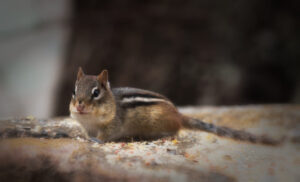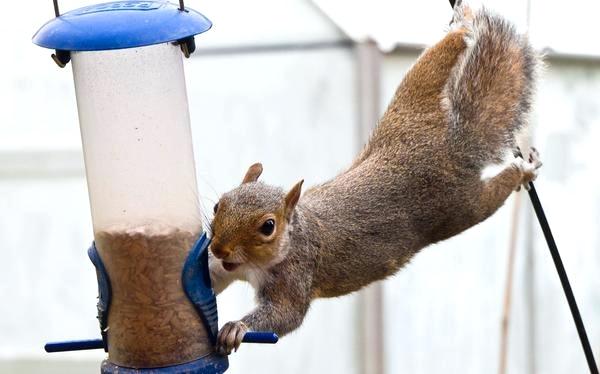Squirrels and chipmunks are part of the same family, called Sciuridae. Woodchucks or marmots, tree squirrels, ground squirrels, and groundhogs all belong to this family, so they’re kind of cousins. They are similar in some ways, different in others. Skedaddle Humane Wildlife Control explains the difference between the two and offers wildlife control in York.
How Do Chipmunks and Squirrels Differ in Appearance?
Ground squirrels and chipmunks are both rodents. They do appear very similar in appearance, but the squirrels will be much larger than chipmunks. Squirrels are usually gray or brown with white fur on their belly. Chipmunks are generally brown with black and white stripes on their back and sides.
Where Do Squirrels and Chipmunks Live?
You’ll find both squirrels and chipmunks in urban areas, but they do have different habitats. Squirrels prefer to live in trees or other high places, such as your attic. They protect their young by making their homes out of reach of predators. Chipmunks prefer to burrow in the ground where they hide from predators and store food. Many urban chipmunks use drain pipes as their tunnel system. Chipmunks prefer wooded areas and forests, while squirrels prefer grassy areas, such as cemeteries or golf courses.

What Do Squirrels and Chipmunks Eat?
Chipmunks and squirrels have similar diets. They both eat seeds and nuts. Squirrels are considered herbivores, even though they do eat some insects. Chipmunks are classified as omnivores because they will also eat berries and insects. Chipmunks are the ones that will damage your gardens, eating the flowering bulbs or injuring ornamental plants as they burrow into the ground.
What Do These Rodents Do in the Winter?
Another key difference between ground squirrels and chipmunks is how they approach winter. Some squirrels do hibernate through the winter. Chipmunks do spend more time in their burrows through the colder months, but they do come out more often than ground squirrels to scavage for food. Chipmunks will store food for the winter, as do some squirrels.
Which Rodents Damage Your Home?
Chipmunks may make tunnels under your yard and flower beds, but they don’t usually come inside your home. Squirrels, on the other hand, do create nests inside of homes. They will chew through screens, insulation, or any other small opening in your house. If you hear scurrying through your walls, it’s more likely mice or squirrels, not chipmunks. Squirrels can cause major damage when they get into your home.
How to Prevent Squirrel Damage to Your Home?
To keep squirrels out of your house, remove sources of food and water. If you do have bird feeders, keep the ground cleaned and use baffles on the poles to prevent squirrels from feeding. Block access to your attic by trimming trees and closing up any entry points. Keep your yard clean. If you have fruit trees or a vegetable garden, don’t leave your harvest on the ground.
If you do notice signs that you may have squirrels living in your attic, don’t try to DIY squirrel removal. Always call professionals who are trained in wildlife removal. Squirrels can be aggressive, especially when protecting their young. Some places have laws about removing wildlife. If the squirrel has a nest, it could have fleas and ticks, so you want to make sure it’s cleaned up properly. You also want to make sure that all the young are removed.
Skedaddle Humane Wildlife Control knows how to tackle your rodent problem. We remediate the problem and help prevent future activity as part of our squirrel removal service. Our technicians safely remove any rodents to keep your family and pets from getting injured. Contact us if you are dealing with wildlife in your home.



